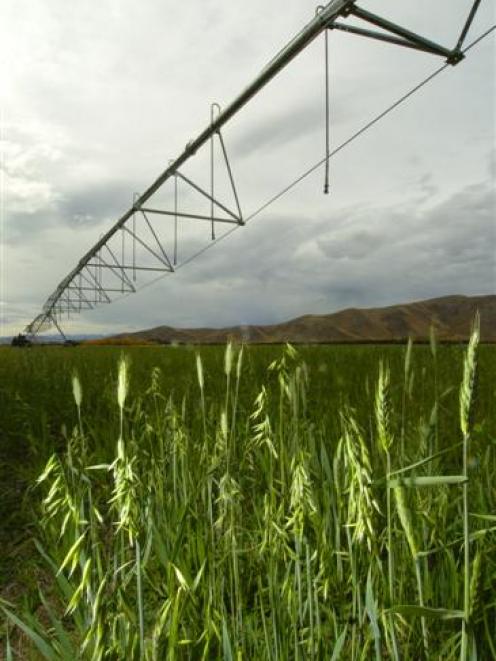
IrrigationNZ said it had "unanswered questions" about how any royalty would be applied and who would be exempted.
Irrigated farms will bear the brunt of the policy if it is introduced. A 100-hectare farm which depends on irrigation could expect to pay around $8000 in additional tax a year.
IrrigationNZ chief executive Andrew Curtis said farmers accepted that they would have to contribute to cleaning up waterways, but they were unsure whether a water tax was the best mechanism.
Speaking to Labour's water spokesman David Parker, Mr Curtis asked whether it was fair to exclude power companies from the proposed scheme.
Labour's royalty would not apply to hydro generators because they do not extract fresh water. But Mr Curtis questioned their exemption.
"If they were truly non-consumptive, the water would flow straight through and out to sea. But it doesn't work like that.
"They tend to take water out of the system and hold it for later in the year.
"The reality is they exclude users. If you're upstream of a hydro dam, it's next to impossible to get a consent to take water to do anything else."
Mr Curtis also said many of the worst-polluted waterways were in urban areas like Auckland, yet the royalty did not apply to town water supplies. And because the estimated $100m in revenue would be returned to the immediate community for waterway restoration, it meant low water users like Northland would get little help despite their water quality problems.
Labour's primary industries spokesman Damien O'Connor said many of the details would be worked out in round-table meetings after the election.
"If they were to push for the details, then they might not end up being the fair details to all parties," he said. "They're just one of the interested players."
He agreed that there were "big issues" with water quality in urban areas, and said the cleanup would be covered by revenue from commercial water users based in those cities.
Irrigation NZ estimates that the average farm used 400,000 cubic metres of water a year. Labour has proposed a royalty of 2c per cubic metre for irrigators, meaning an irrigated farm would pay additional tax of around $8000 a year.
The costs would vary according to region, farm type and other factors.
National Institute of Water and Atmospheric Research (Niwa) hydrologist Daniel Collins said it took roughly 1000 litres to produce one litre of milk, but most of that water came from rainfall.
Around 160 litres of this total came from irrigation water, meaning that on average a one litre bottle of milk would increase in cost by 0.3c under Labour's plan.
Collins said that regional differences were important. In Waikato, the abundant rainfall meant very little supplemental irrigation was needed to produce milk.
In Canterbury, however, a dairy farm needed around 250 litres of irrigation water in additional to rainfall to produce 1 litre of milk.
